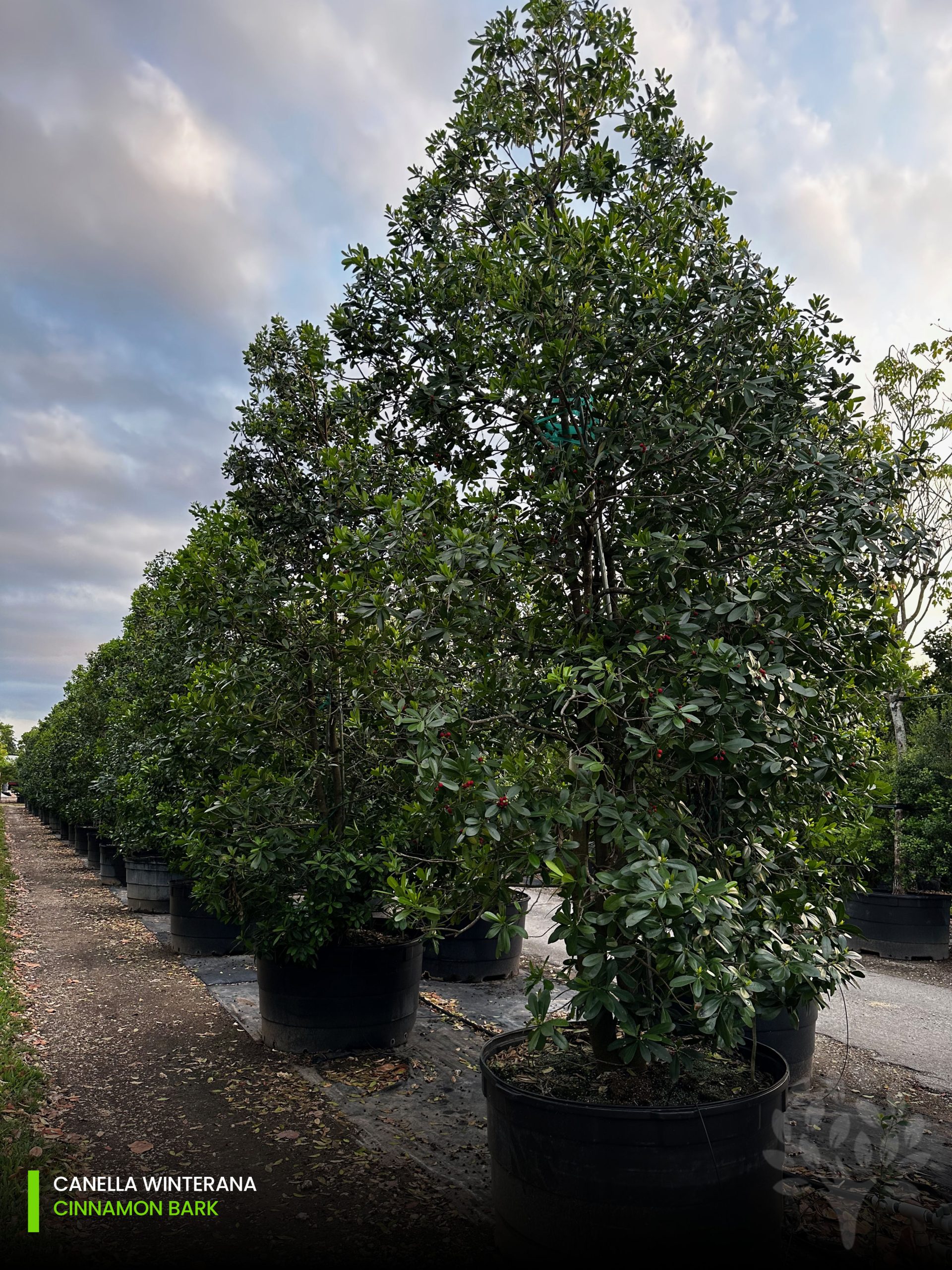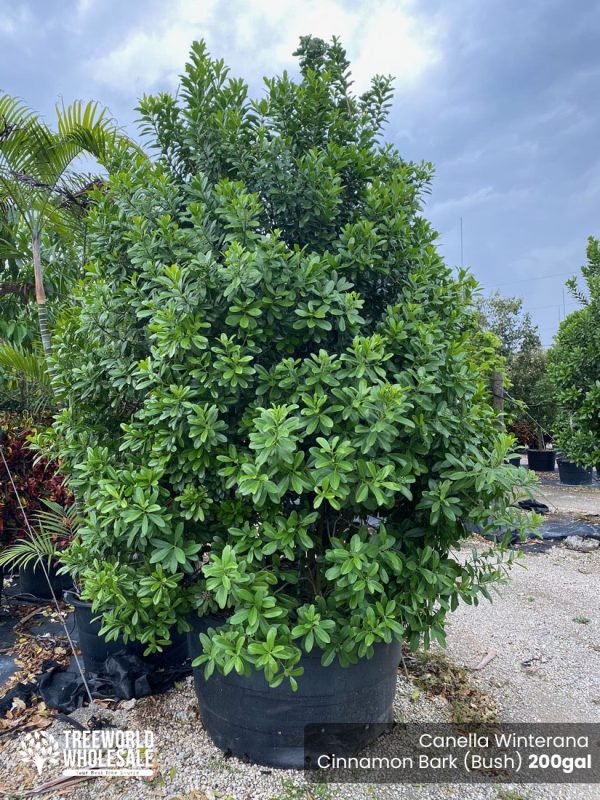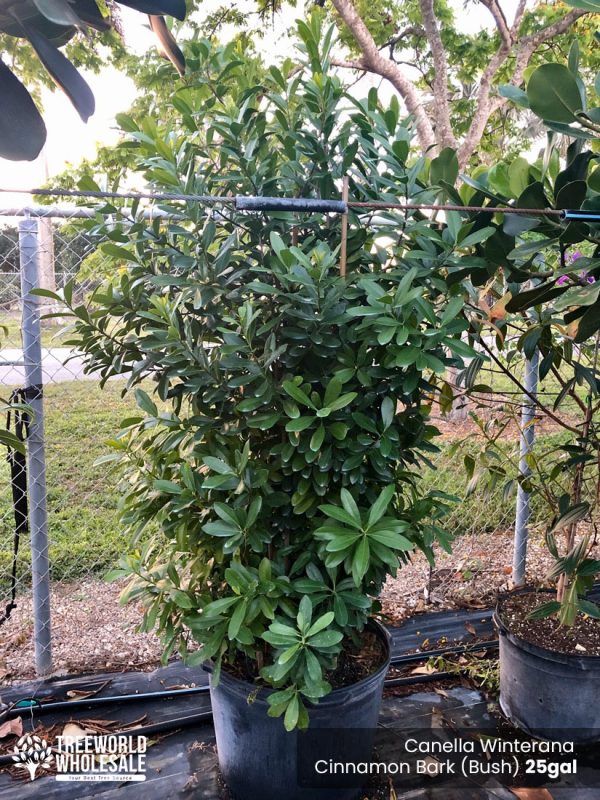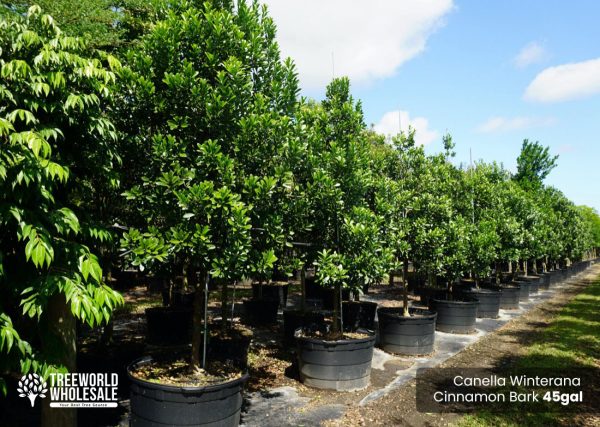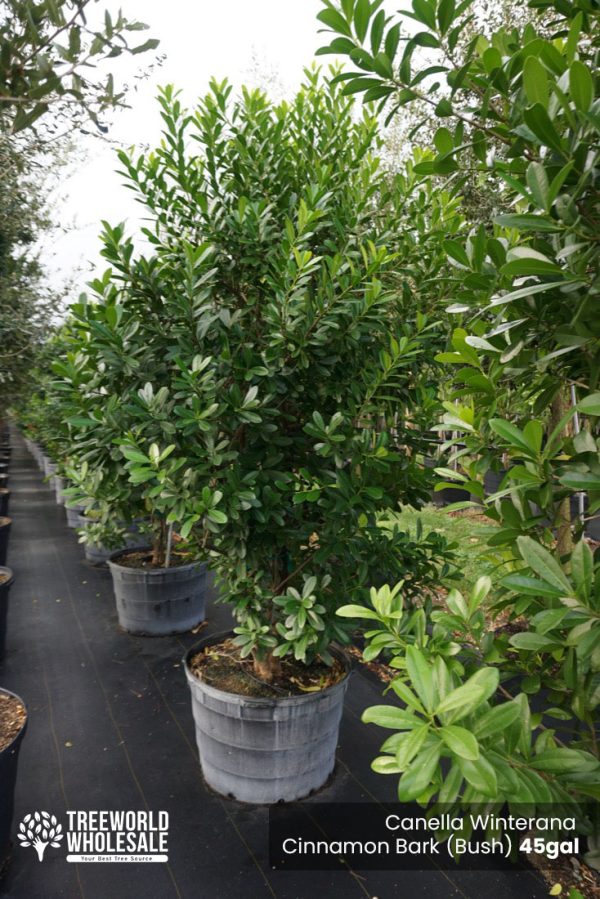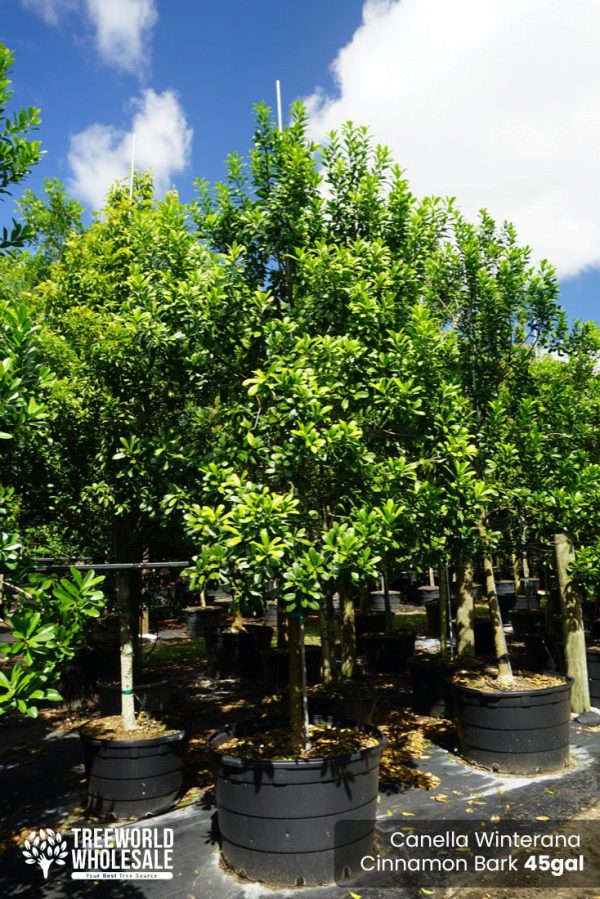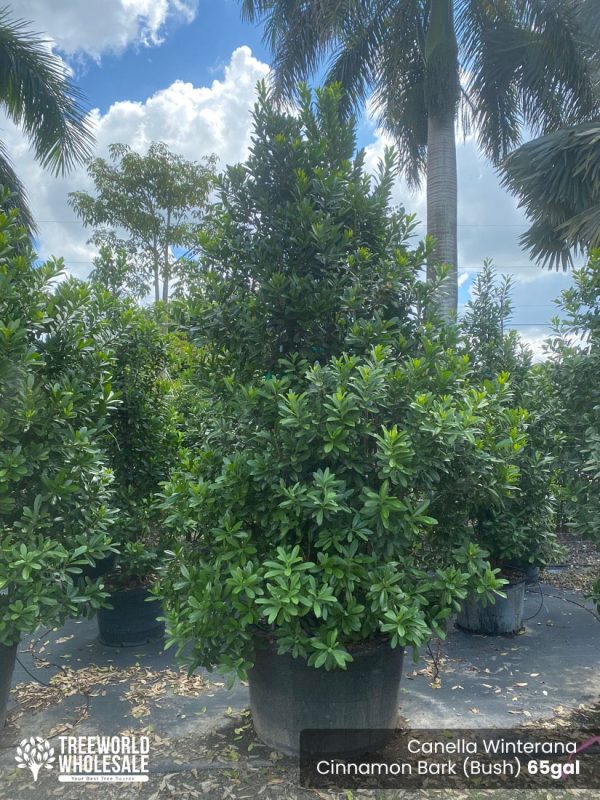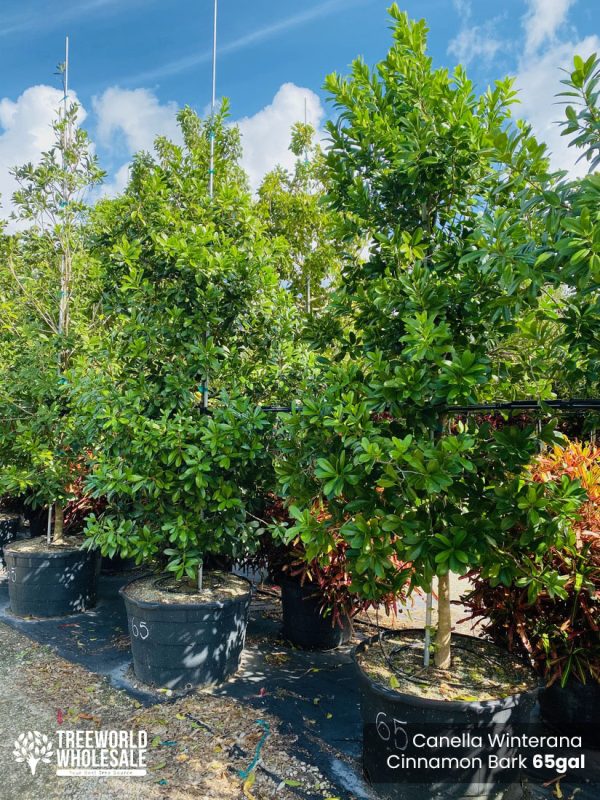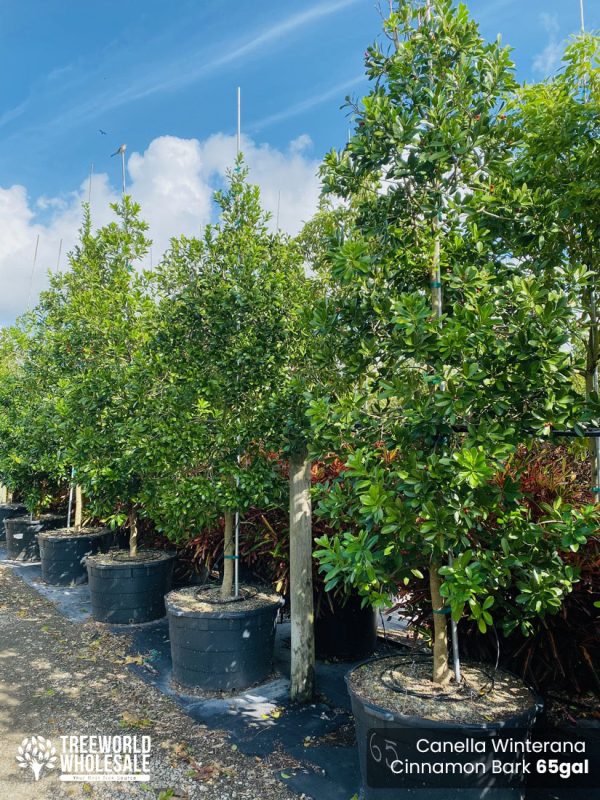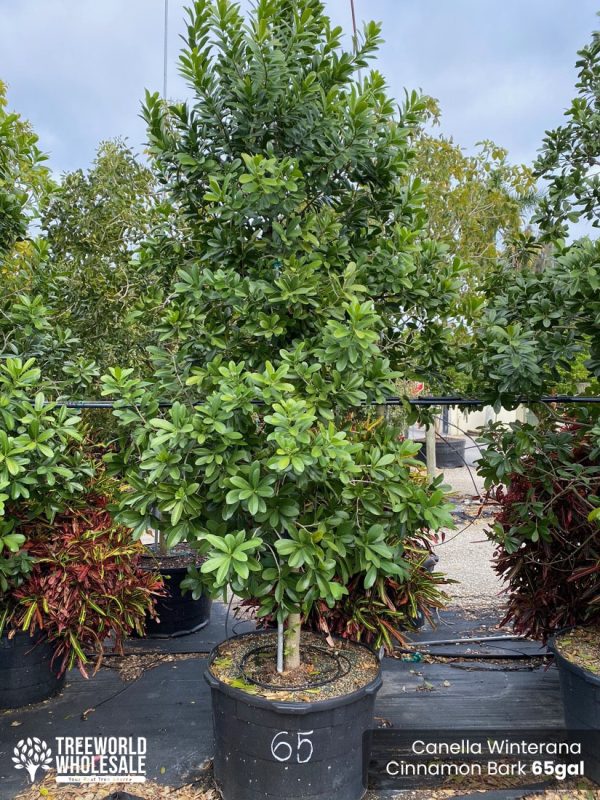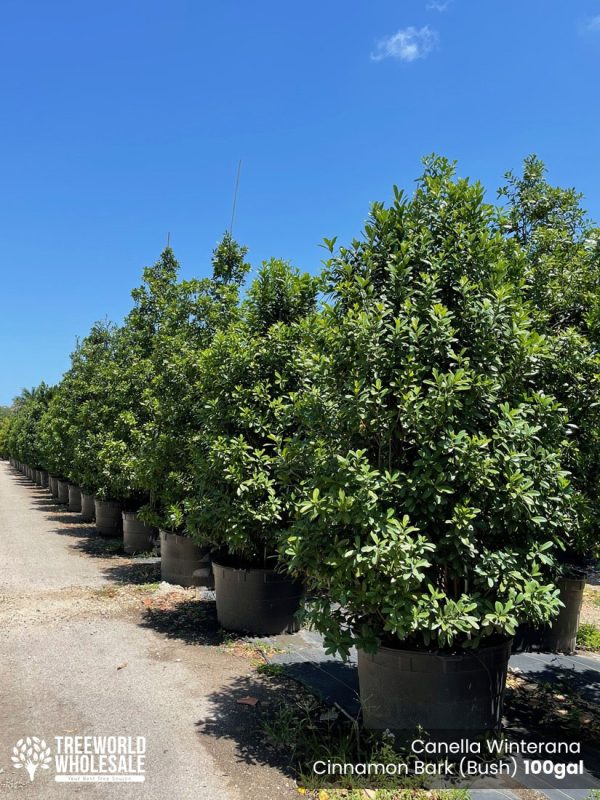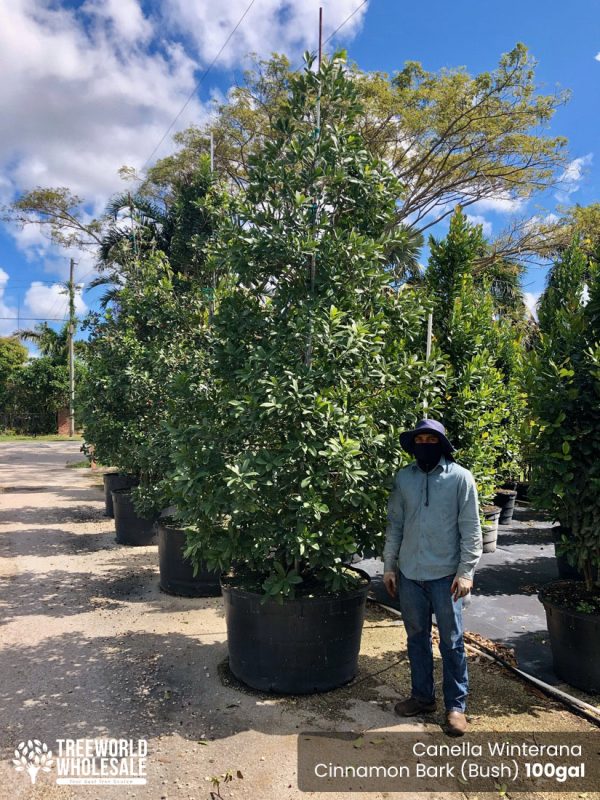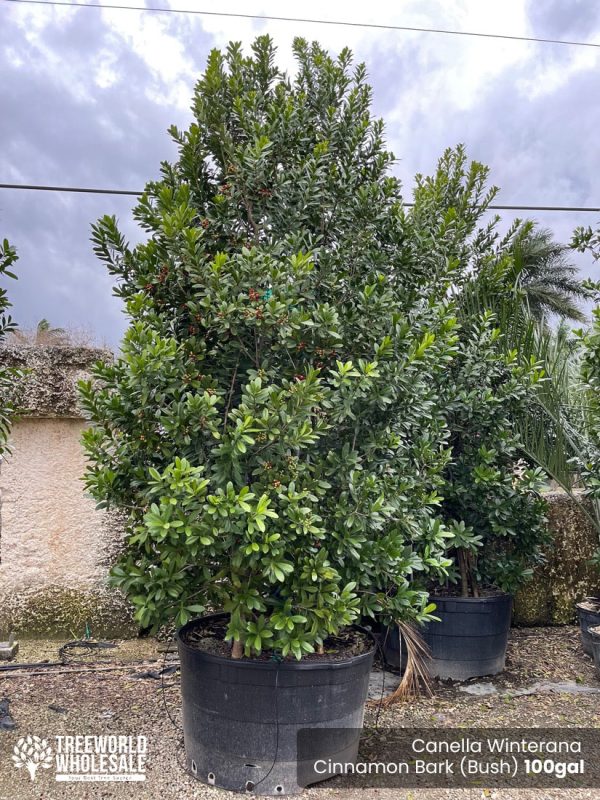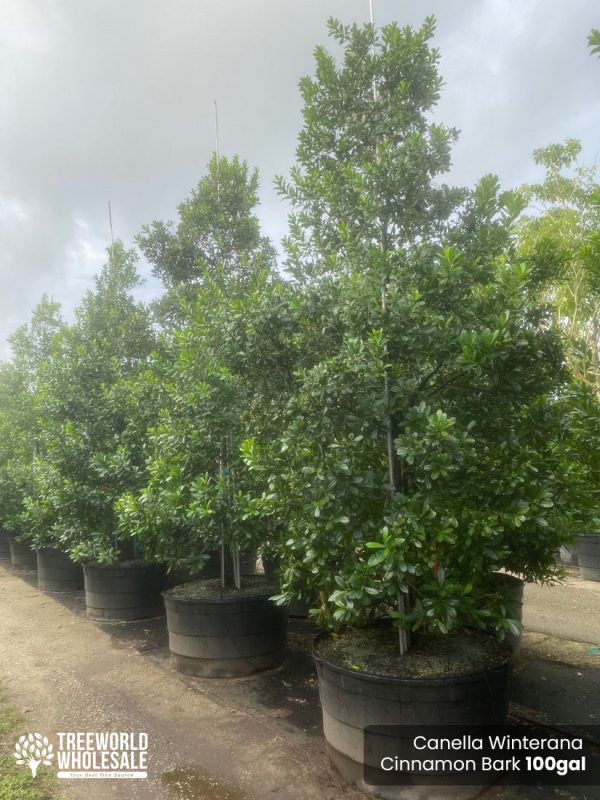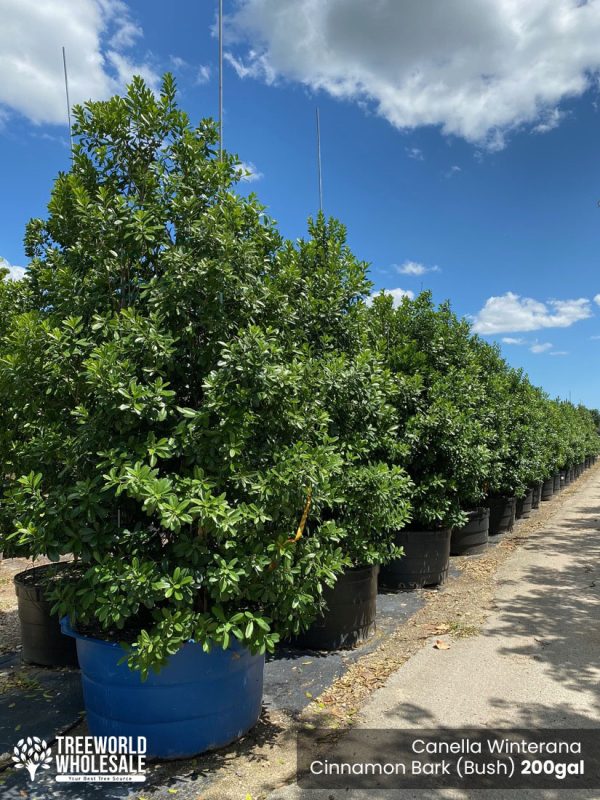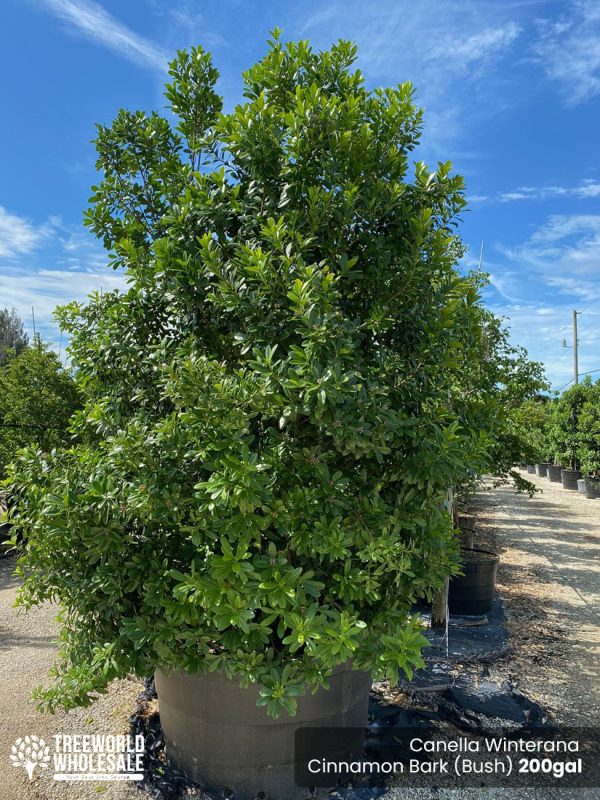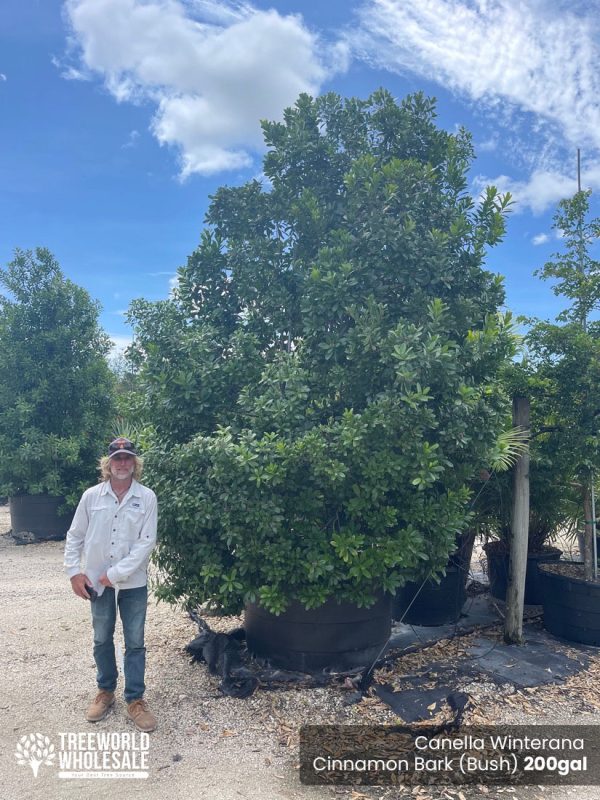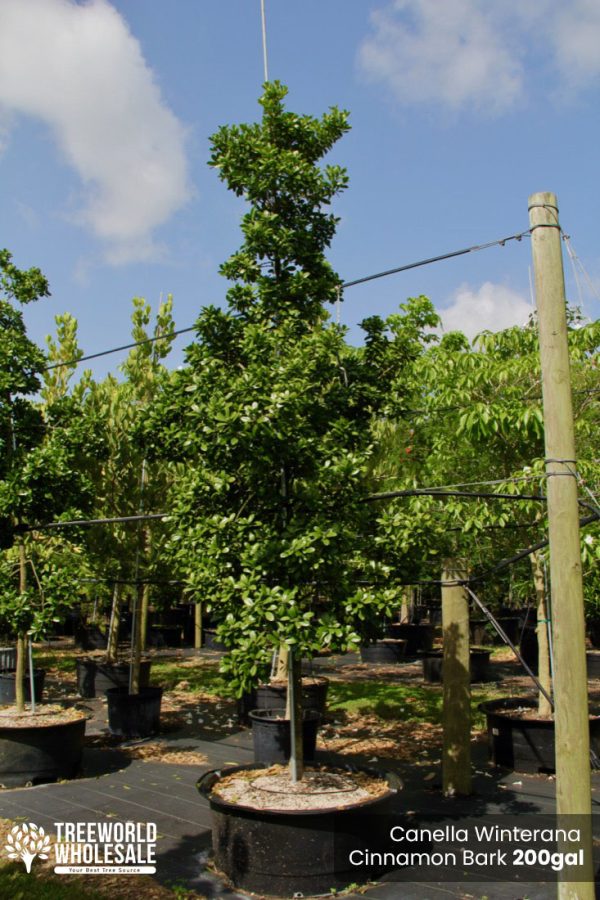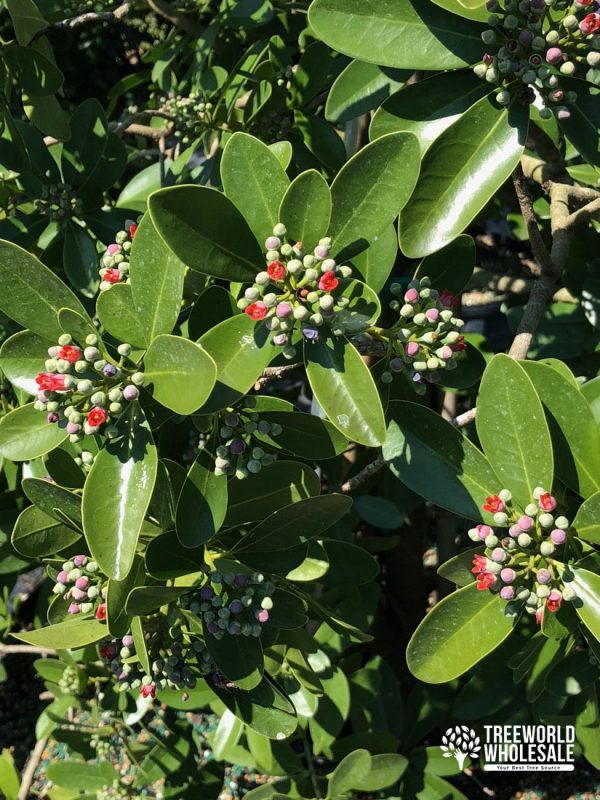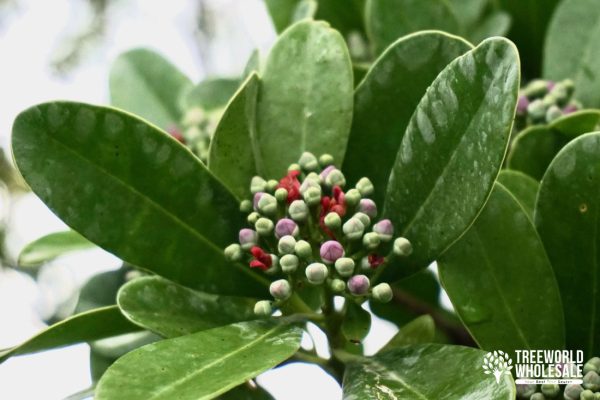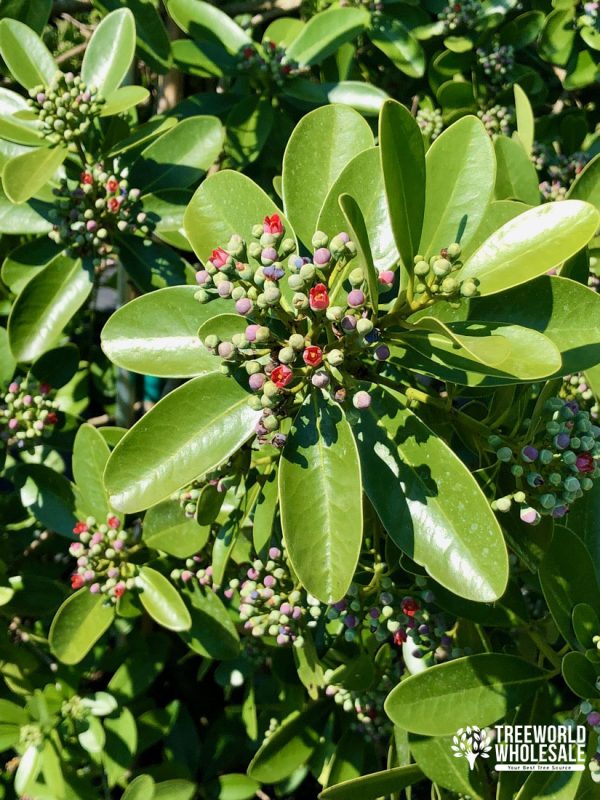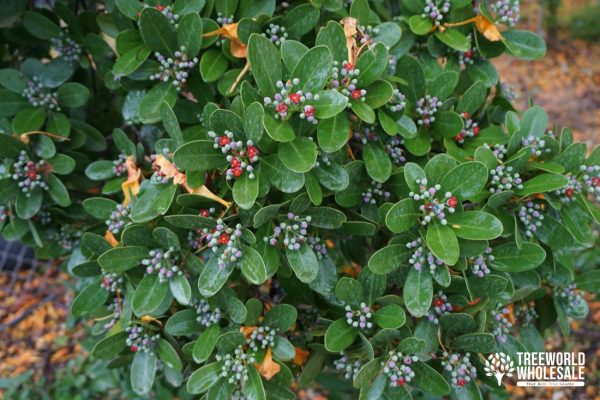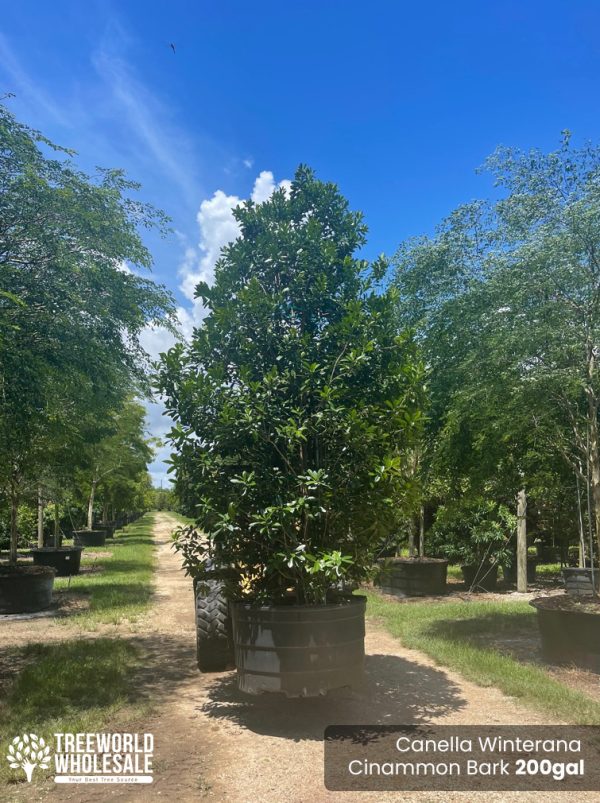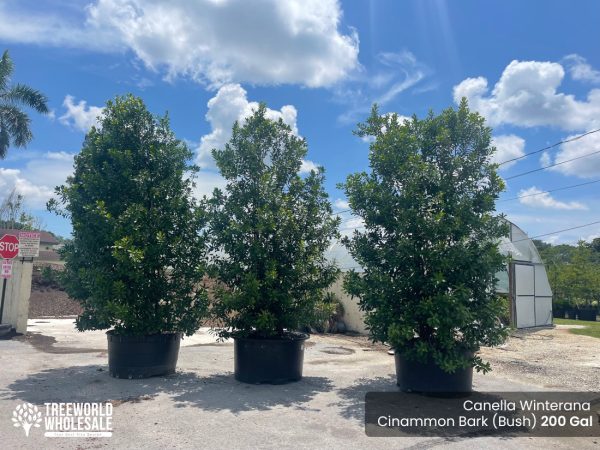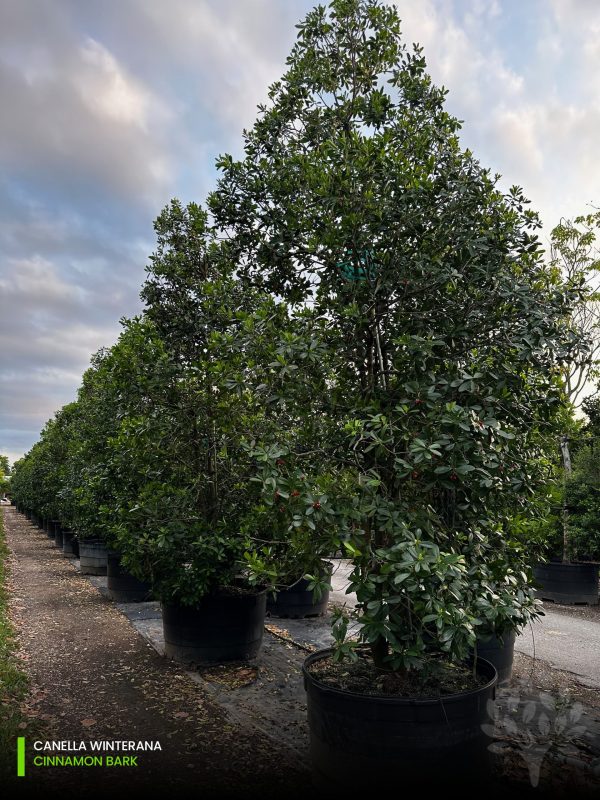Description
Cinnamon bark tree description
Canella Winterana (Cinnamon bark) is a Florida Native small tree or bush that takes its name from the spicy fragrance of its crushed leaves. Cinnamon bark tree is a small shrubby tree reaching 15 feet (4.57 m) in height. It has a straight trunk and with age develops a dense crown. Firstly, it is known for its light gray fissured thin bark. The dark green leaves are leathery and obovate with smooth margins. Borne alternately or clustered toward the branch tips, measuring 4 by 1.5 inches. In addition, cinnamon bark tree flowers are arranged on an inflorescence. The mildly fragrant blooms are small, about 0.5 inch (1.27 cm) wide, with red petals and yellow anthers. Also, the blooms are rich in nectar, attracting insects, including wasps.
The fruit is about 3/8 inch in diameter, purple-red at maturity with black seeds, and used for propagation. The fruits attract birds. In addition, the bark, fruits, and leaves serve a role in herbal medicine.
Canella Winterana tree cultivation
In cultivation, the cinnamon bark tree does well in well-drained, high PH soils. It requires little pruning. Also, the major reported pest is thrips.
Cinnamon bark is a handsome ornamental tree because of its attractive leaves, flowers, and fruits. It is suitable for gardens, patios, along the seaside and streets. However, Cinnamon bark’s seeds serve for propagation purposes.
Some other common names for Canella Winterana are: Pepper Cinnamon, Palo Malambo.
🌳More popular and beautiful plants: Bombax tree
























